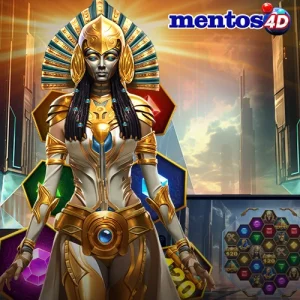In the vast landscape of digital entertainment, online gaming stands tall as a pillar of modern leisure. From the early days of dial-up connections to today’s seamless multiplayer experiences, the journey of online gaming has been nothing short of revolutionary. This article Mentos4d explores the evolution, cultural impact, and future prospects of online gaming. 
The Dawn of a Digital Era
Online gaming traces its roots back to the late 20th century when rudimentary multiplayer experiences began to emerge. Titles like “MUDs” (Multi-User Dungeons) and early online shooters paved the way for what was to come. However, it wasn’t until the widespread adoption of high-speed internet in the late 1990s and early 2000s that online gaming truly took off.
A World of Possibilities
The advent of broadband internet opened the floodgates to a world of possibilities. Players could now engage in massive virtual worlds, collaborate with friends across the globe, and compete in esports tournaments with professional stakes. Games like “World of Warcraft,” “Counter-Strike,” and “League of Legends” became household names, each with its own vibrant community and subculture.
The Cultural Impact
Online gaming transcends mere entertainment; it has become a cultural phenomenon. It serves as a social hub where friendships are forged, rivalries are kindled, and communities thrive. In an increasingly interconnected world, online gaming provides a common ground where people from diverse backgrounds can come together and share experiences.
Moreover, online gaming has spurred technological innovation. The demand for faster internet speeds, more powerful hardware, and sophisticated networking infrastructure has pushed the boundaries of technology, benefiting not only gamers but society as a whole.
Challenges and Controversies
However, online gaming is not without its challenges. Concerns about addiction, cyberbullying, and toxic behavior have prompted discussions about responsible gaming practices and the need for safer online environments. Game developers and platform holders are constantly refining moderation tools and implementing measures to promote positive interactions among players.
The Future Horizon
As technology continues to advance, the future of online gaming looks brighter than ever. Virtual reality (VR) and augmented reality (AR) are poised to revolutionize the way we experience games, offering immersive worlds that blur the line between reality and fantasy. Cloud gaming services promise to make high-end gaming accessible to anyone with an internet connection, ushering in an era of gaming without boundaries.
Furthermore, the rise of blockchain technology introduces new possibilities for ownership and monetization within gaming ecosystems. NFTs (Non-Fungible Tokens) and blockchain-based marketplaces could reshape the way players acquire and trade in-game assets, empowering creators and players alike.
Conclusion
Online gaming has come a long way from its humble beginnings, evolving into a global phenomenon that shapes the way we play, connect, and interact with technology. As we look to the future, the potential for innovation and cultural impact within the realm of online gaming